Hakosil-8 Capsule 10's
MRP ₹345
(Inclusive of all Taxes)
₹51.8 Cashback (15%)
Provide Delivery Location
Online payment accepted
 Prescription drug
Prescription drugWhats That
Composition :
Manufacturer/Marketer :
Consume Type :
Return Policy :
About Hakosil-8 Capsule 10's
Hakosil-8 Capsule 10's belongs to the group of medicines called 'alpha-blockers' used to treat the symptoms of an enlarged prostate gland (benign prostatic hyperplasia - BPH) in men. Benign prostatic hyperplasia (BPH) is a condition in which there is an enlargement of the prostate gland due to the multiplication of the cells mostly in men above 50 years of age. The growth of the prostate gland is non-cancerous in nature.
Hakosil-8 Capsule 10's contains ‘Silodosin’ that works by blocking the receptors (alpha 1) located in the prostate, bladder and urethra (urine pipe), thereby relaxes the muscles of the bladder and prostate gland. This help in relieving the symptoms of benign prostatic hyperplasia and makes it easier to pass water, thereby increasing urine output and flow.
You are advised to take Hakosil-8 Capsule 10's for as long as your doctor has prescribed it for you, depending on your medical condition. In some cases, Hakosil-8 Capsule 10's may cause common side-effects such as ejaculation disorders (orgasm with reduced or no sperm), dizziness, diarrhoea, stuffy nose (nasal congestion), and orthostatic hypotension (sudden lowering in blood pressure leading to dizziness on standing). Most of these side effects do not require medical attention and will resolve gradually over time. However, you are advised to talk to your doctor if you experience these side effects persistently.
Inform your doctor if you have low blood pressure, liver or kidney disease. Hakosil-8 Capsule 10's is intended for use in men only; women should not take Hakosil-8 Capsule 10's, especially pregnant or breastfeeding women. Hakosil-8 Capsule 10's should not be given to children as safety and efficacy have not been established. Hakosil-8 Capsule 10's may cause dizziness, so drive with caution. Avoid or limit alcohol consumption along with Hakosil-8 Capsule 10's as it could lead to increased dizziness. Inform your doctor about your health condition and medications to rule out any side-effects.
Uses of Hakosil-8 Capsule 10's
Directions for Use
Key Benefits
Hakosil-8 Capsule 10's belongs to the group of medicines called alpha-blockers used to treat the symptoms of an enlarged prostate (benign prostatic hyperplasia) mostly in men above 50 years of age. Hakosil-8 Capsule 10's works by blocking the receptors (alpha 1) located in the prostate, bladder and urethra (urine pipe), thereby relaxes the muscles of the bladder and prostate gland. This help in relieving the symptoms of benign prostatic hyperplasia and makes it easier to pass water, thereby increasing urine output and flow.
Storage
- Inform your doctor about the common cold symptoms you're experiencing due to medication.
- Your doctor may adjust your treatment plan, which could include changing your medication, adding new medications, or offering advice on managing your symptoms.
- Practice good hygiene, including frequent handwashing, avoiding close contact with others, and avoiding sharing utensils or personal items.
- Drink plenty of fluids, such as warm water or soup, to help thin out mucus.
- Get plenty of rest and engage in stress-reducing activities to help your body recover. If your symptoms don't subside or worsen, consult your doctor for further guidance.
- Inform your doctor about dizziness symptoms. They may adjust your medication regimen or prescribe additional medications to manage symptoms.
- Follow your doctor's instructions for taking medication, and take it at the same time every day to minimize dizziness.
- When standing up, do so slowly and carefully to avoid sudden dizziness.
- Avoid making sudden movements, such as turning or bending quickly, which can exacerbate dizziness.
- Drink plenty of water throughout the day to stay hydrated and help alleviate dizziness symptoms.
- If you're feeling dizzy, sit or lie down and rest until the dizziness passes.
- Track when dizziness occurs and any factors that may trigger it, and share this information with your doctor to help manage symptoms.
- Inform Your Doctor: Notify your doctor immediately about your diarrhoea symptoms. This allows them to adjust your medication or provide guidance on managing side effects.
- Stay Hydrated: Drink plenty of fluids to replace lost water and electrolytes. Choose water, clear broth, and electrolyte-rich drinks. Avoid carbonated or caffeinated beverages to effectively rehydrate your body.
- Follow a Bland Diet: Eat easy-to-digest foods to help firm up your stool and settle your stomach. Try incorporating bananas, rice, applesauce, toast, plain crackers, and boiled vegetables into your diet.
- Avoid Trigger Foods: Steer clear of foods that can worsen diarrhoea, such as spicy, fatty, or greasy foods, high-fibre foods, and dairy products (especially if you're lactose intolerant).
- Practice Good Hygiene: Maintain good hygiene to prevent the spread of infection. To stay healthy, wash your hands frequently, clean and disinfect surfaces regularly, and avoid exchanging personal belongings with others.
- Take Anti-Diarrheal Medications: If your doctor advises, anti-diarrheal medications such as loperamide might help manage diarrhoea symptoms. Always follow your doctor's directions.
- Keep track of your diarrhoea symptoms. If they don't get better or worse or are accompanied by severe stomach pain, blood, or dehydration signs (like extreme thirst or dark urine), seek medical help.
- Hydrate your body: Drink enough water to prevent dehydration and headaches.
- Calm Your Mind: Deep breathing and meditation can help you relax and relieve stress.
- Rest and Recharge: Sleep for 7-8 hours to reduce headache triggers.
- Take rest: lie down in a quiet, dark environment.
- Cold or warm compresses can help reduce tension.
- Stay Upright: Maintain good posture to keep symptoms from getting worse.
- To treat headaches naturally, try acupuncture or massage therapy.
- Over-the-counter pain relievers include acetaminophen and ibuprofen.
- Prescription Assistance: Speak with your doctor about more substantial drug alternatives.
- Severe Headaches: Seek emergency medical assistance for sudden, severe headaches.
- Frequent Headaches: If you get reoccurring headaches, consult your doctor.
- Headaches with Symptoms: Seek medical attention if your headaches include fever, disorientation, or weakness.
- Do not stand up suddenly. Lie down and get up slowly only when you feel better.
- Avoid alcohol and large meals.
- Drink enough water before standing for long periods.
- Exercise regularly; however, avoid exercising in extreme heat.
- Eat small, low-carb meals.
- Wear compression stockings.
Drug Warnings
Do not take Hakosil-8 Capsule 10's if you are allergic to Silodosin, any alpha 1 blockers or any of the components in Hakosil-8 Capsule 10's. Inform your doctor if you have low blood pressure, liver or kidney disease. Talk to your doctor before taking Hakosil-8 Capsule 10's if you are undergoing eye surgery (cataract surgery) as cases of intraoperative floppy iris syndrome (IFIS) have been found in some cases. Hakosil-8 Capsule 10's is intended for use in men only; women should not take Hakosil-8 Capsule 10's, especially pregnant or breastfeeding women. Hakosil-8 Capsule 10's should not be given to children as safety and efficacy have not been established. Hakosil-8 Capsule 10's may cause dizziness, so drive only if you are alert. Avoid or limit alcohol consumption along with Hakosil-8 Capsule 10's as it could lead to increased dizziness.
Drug-Drug Interactions
Drug-Drug Interactions
Login/Sign Up
Co-administration of Atazanavir and Hakosil-8 Capsule together can increase the effectiveness of Hakosil-8 Capsule which may lead to side effects including extremely low blood pressure, increased heart rate.
How to manage the interaction:
Taking Atazanavir and Hakosil-8 Capsule together is not recommended as it can result in an interaction, but it can be taken if a doctor has advised it. However, if you experience any symptoms such as dizziness, lightheadedness, fainting, headache, flushing, nasal congestion, or heart palpitation, consult a doctor immediately. Do not discontinue any medications without consulting a doctor.
Co-administration of Telithromycin and Hakosil-8 Capsule together can increase the effect of Hakosil-8 Capsule which may lead to side effects like extremely low blood pressure and increased heart rate.
How to manage the interaction:
Taking Telithromycin and Hakosil-8 Capsule together is not recommended, but it can be taken if prescribed by a doctor. If you notice any of these signs like dizziness, lightheadedness, fainting, headache, flushing, nasal congestion, heart palpitation, call a doctor right away. Do not stop using any medications without a doctor's advice.
Coadministration of Hakosil-8 Capsule and posaconazole may significantly increase the blood levels and effects of Hakosil-8 Capsule.
How to manage the interaction:
Although there is an interaction between Posaconazole and Hakosil-8 Capsule, they can be taken together if prescribed by a doctor. However, consult a doctor if you experience sudden dizziness, lightheadedness, fainting, nasal congestion, and headache. Do not discontinue any medications without consulting a doctor.
Co-administration of Delavirdine and Hakosil-8 Capsule together can increase the effect of Hakosil-8 Capsule which may lead to side effects including extremely low blood pressure, increased heart rate.
How to manage the interaction:
Taking Hakosil-8 Capsule with Delavirdine together is not recommended as it can possibly result in an interaction, but it can be taken if a doctor has advised it. However, consult a doctor immediately if you experience any symptoms such as dizziness, lightheadedness, fainting, headache, flushing, nasal congestion, or heart palpitation. Do not discontinue any medications without consulting a doctor.
Co-administration of Ceritinib and Hakosil-8 Capsule together can increase the effect of Hakosil-8 Capsule and increase the risk for side effects.
How to manage the interaction:
Taking Hakosil-8 Capsule and Ceritinib together is not recommended as it can possibly result in an interaction, but it can be taken if a doctor has advised it. However, consult a doctor immediately if you experience any symptoms such as dizziness, lightheadedness, fainting, headache, flushing, nasal congestion, or heart palpitation. Do not discontinue any medications without consulting a doctor.
Taking Hakosil-8 Capsule with Clarithromycin may significantly increase the blood levels and effects of Hakosil-8 Capsule, this may cause blood pressure to fall excessively and heart rate to increase, especially when you rise from a sitting or lying position.
How to manage the interaction:
Co-administration of Clarithromycin and Hakosil-8 Capsule is not recommended as it can lead to an interaction, but it can be taken if advised by a doctor. However, consult a doctor immediately if you experience any symptoms like dizziness, lightheadedness, fainting, headache, flushing, nasal congestion, or heart palpitation. Do not stop using any medications without a doctor's advice.
Co-administration of Cobicistat and Hakosil-8 Capsule together can increase the effect of Hakosil-8 Capsule which may lead to side effects including extremely low blood pressure, increased heart rate.
How to manage the interaction:
Taking Cobicistat with Hakosil-8 Capsule together is not recommended as it can possibly result in an interaction, but it can be taken if a doctor has advised it. However, consult a doctor immediately if you experience any symptoms such as dizziness, lightheadedness, fainting, headache, flushing, nasal congestion, or heart palpitation. Do not discontinue any medications without consulting a doctor.
Co-administration of Fosamprenavir and Hakosil-8 Capsule together can increase the effect of Hakosil-8 Capsule which may lead to side effects including extremely low blood pressure, increased heart rate.
How to manage the interaction:
Taking Fosamprenavir with Hakosil-8 Capsule together i not recommended as it can possibly result in an interaction, but it can be taken if a doctor has advised it. However, consult a doctor immediately if you experience any symptoms such as dizziness, lightheadedness, fainting, headache, flushing, nasal congestion, or heart palpitation. Do not discontinue any medications without consulting a doctor.
Co-administration of Amprenavir and Hakosil-8 Capsule together can increase the effect of Hakosil-8 Capsule which may lead to extremely low blood pressure, increased heart rate and other side effects.
How to manage the interaction:
Taking Amprenavir and Hakosil-8 Capsule together is avoided, but it can be taken if your doctor has advised it. However, consult a doctor immediately if you experience any symptoms such as dizziness, lightheadedness, fainting, headache, flushing, nasal congestion, or heart palpitation. Do not discontinue any medications without consulting a doctor.
Co-administration of Hakosil-8 Capsule together with Voriconazole, may significantly increase the blood levels and effects of Hakosil-8 Capsule which may lead to side effects.
How to manage the interaction:
Taking Voriconazole and Hakosil-8 Capsule is not recommended, but it can be taken if prescribed by a doctor. If you experience dizziness, headache, heart palpitation-call a doctor right away. Do not stop using any medications without a doctor's advice.
Drug-Food Interactions
Drug-Food Interactions
Login/Sign Up
Diet & Lifestyle Advise
- Urinate as soon as you feel the urge.
- Avoid excess caffeine and alcohol consumption.
- Maintain a healthy diet and exercise regularly.
- Practice kegel exercises to strengthen pelvic muscles.
- Reduce stress levels by doing yoga or meditation. Nervousness can increase the frequency of urination.
Side Effects of Hakosil-8 Capsule 10's
- Ejaculation disorders (orgasm with reduced or no sperm)
- Dizziness
- Diarrhoea
- Stuffy nose (nasal congestion)
- Orthostatic hypotension (sudden lowering in blood pressure leading to dizziness on standing)
Habit Forming
Therapeutic Class
All Substitutes & Brand Comparisons
RX
Prostagard 8 Capsule 10's
Aristo Pharmaceuticals Pvt Ltd
₹210
(₹18.9 per unit)
45% CHEAPERRX
Silotrif 8 Capsule 10's
Msn Laboratories Pvt Ltd
₹240.5
(₹21.65 per unit)
37% CHEAPERRX
Sildosin 8 mg Capsule 10's
Vasu Healthcare Pvt Ltd
₹287.5
(₹25.88 per unit)
24% CHEAPER
Author Details
We provide you with authentic, trustworthy and relevant information
Drug-Diseases Interactions
Drug-Diseases Interactions
Login/Sign Up
FAQs
Drug-Drug Interactions Checker List
- TADALAFIL
- SILDENAFIL
- TAMSULOSIN
- METOPROLOL
- ITRACONAZOLE
- KETOCONAZOLE
- VERAMAPIL
- DILTIAZEM
- CLARITHROMYCIN
- ERYTHROMYCIN
Special Advise
If you have had cataract surgery, let your doctor know before taking Hakosil-8 Capsule 10's as it may affect the pupil of the eye during cataract surgery. In some cases, intraoperative floppy iris syndrome (IFIS) has been found.
Disease/Condition Glossary
Benign prostatic hyperplasia (BPH): The prostate is a small, muscular gland in the male reproductive system which surrounds the urethra. Benign prostatic hyperplasia is a condition in which there is an enlargement of the prostate gland which occurs due to the multiplication of the cells. This causes the prostate gland to swell, which leads to the squeezing of the urethra and limits the urine flow. The symptoms of benign prostatic hyperplasia include painful urination, difficulty in urination, excess urination, incomplete urination, leakage of urine, dribbling at the end of the urinary stream, and urgency in urination. An enlarged prostate is a normal condition in older men due to changes in male sex hormones.

Have a query?
Alcohol
Safe if prescribed
You are recommended to avoid or limit alcohol consumption while taking Hakosil-8 Capsule 10's as it may cause increased dizziness.
Pregnancy
Consult your doctor
Hakosil-8 Capsule 10's is intended for use in men only; women should not take Hakosil-8 Capsule 10's, especially pregnant women.
Breast Feeding
Consult your doctor
Hakosil-8 Capsule 10's is intended for use in men only; women should not take Hakosil-8 Capsule 10's, especially breastfeeding women.
Driving
Safe if prescribed
Hakosil-8 Capsule 10's may cause dizziness. Do not drive or operate heavy machinery if you experience dizziness.
Liver
Consult your doctor
Hakosil-8 Capsule 10's should not be used if you have severe liver impairment. Please consult your doctor if you have a liver impairment or any concerns regarding this.
Kidney
Consult your doctor
Dose adjustment may be necessary. Please consult your doctor if you have kidney impairment or any concerns regarding this.
Children
Safe if prescribed
Hakosil-8 Capsule 10's should not be given to children as the safety and efficacy have not been established.





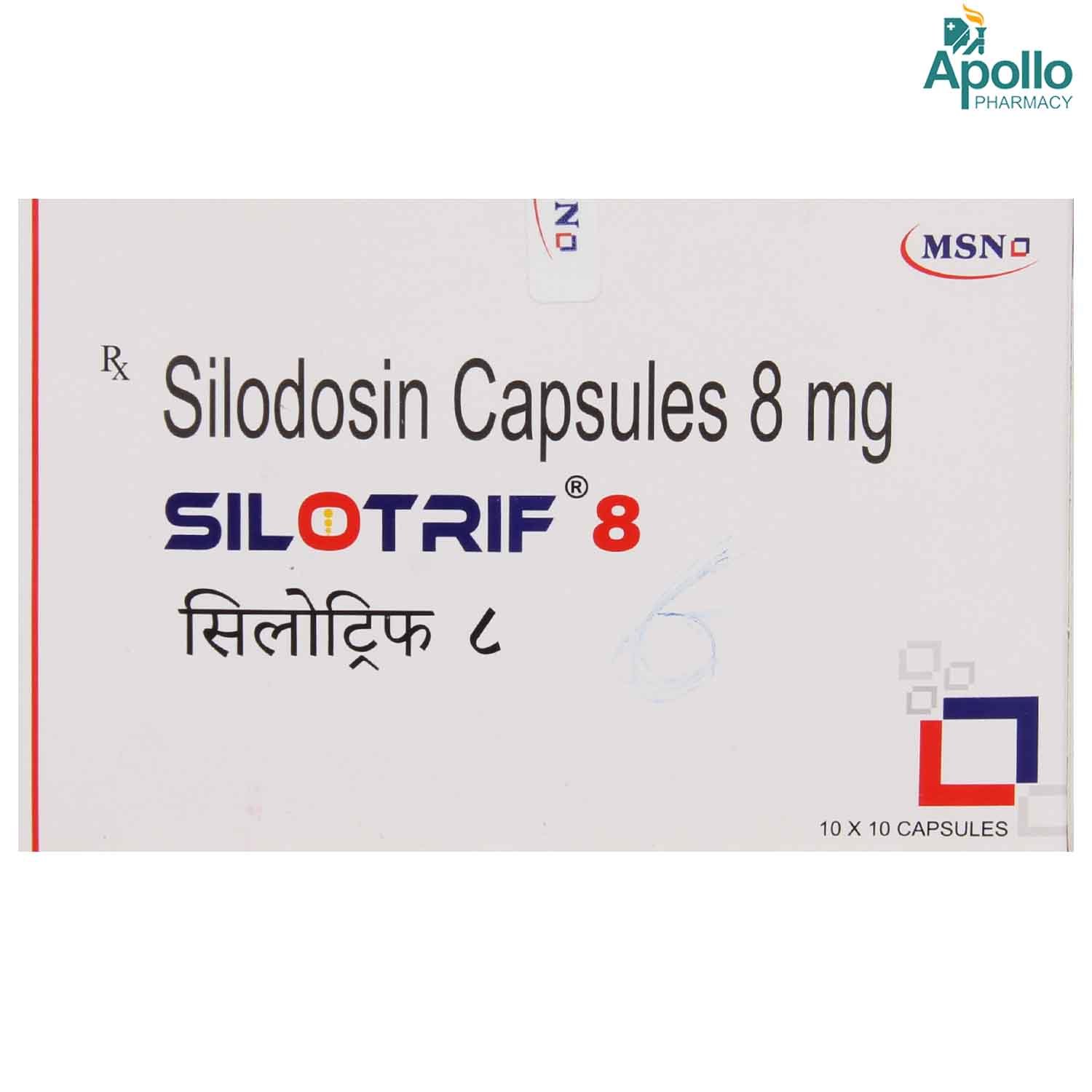
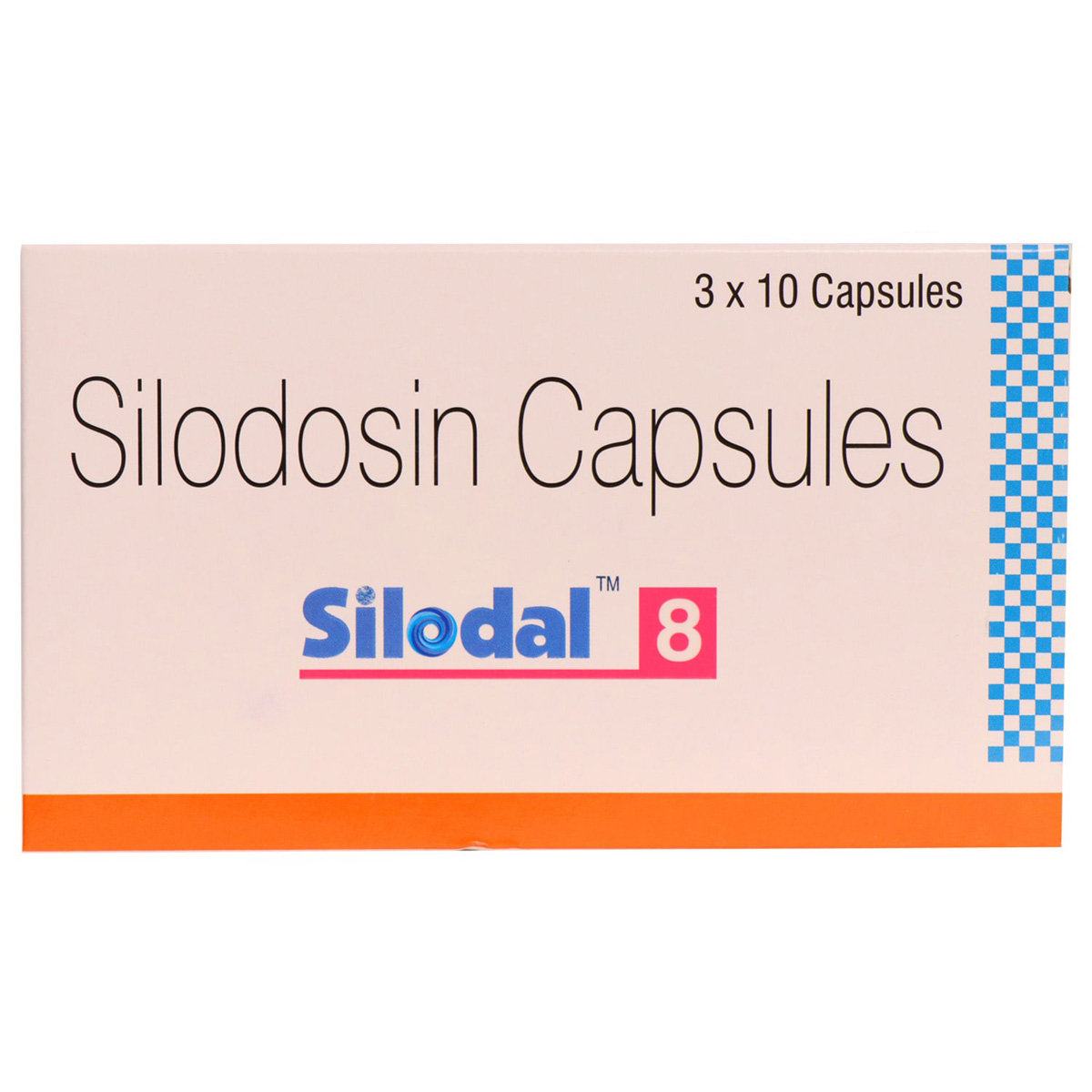
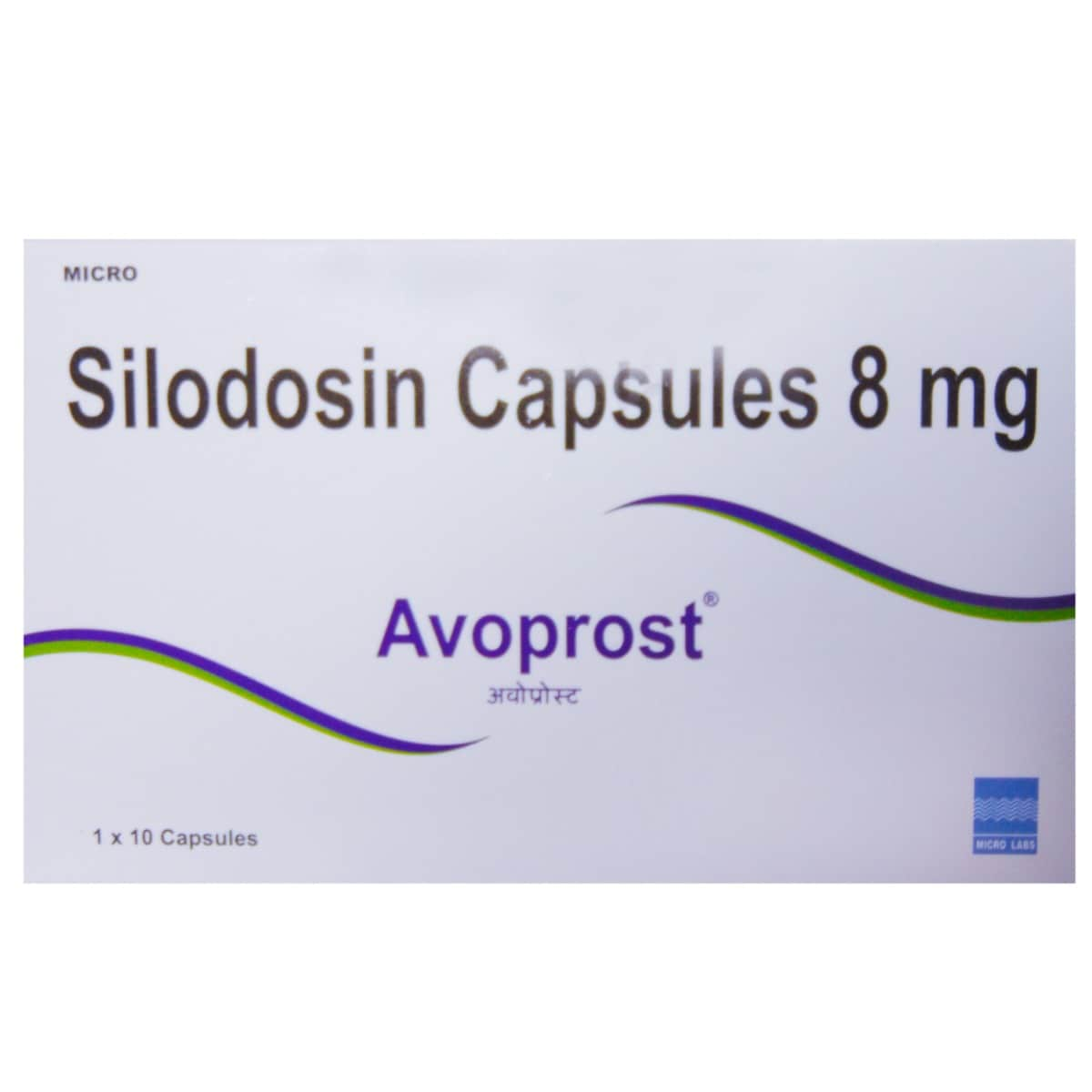
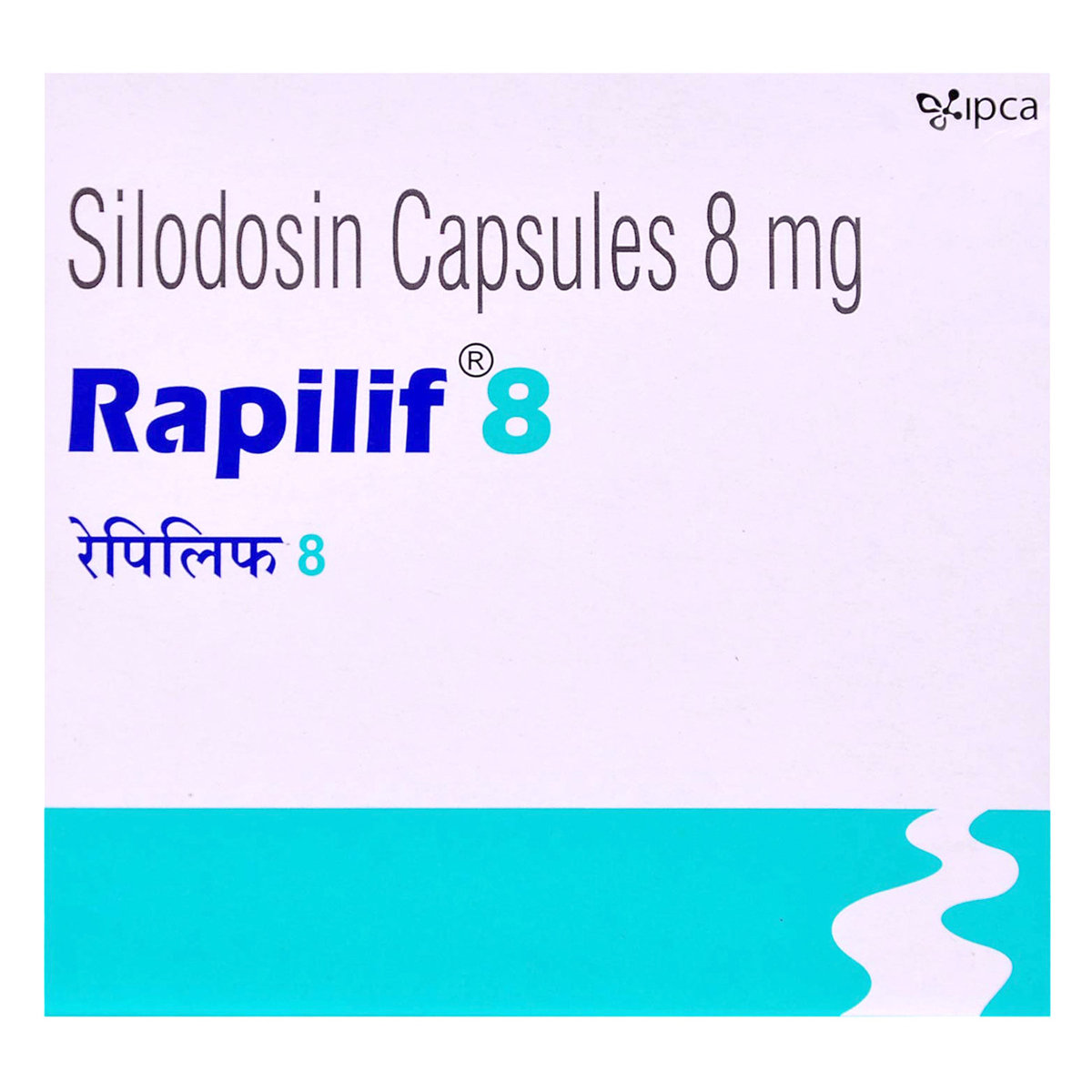
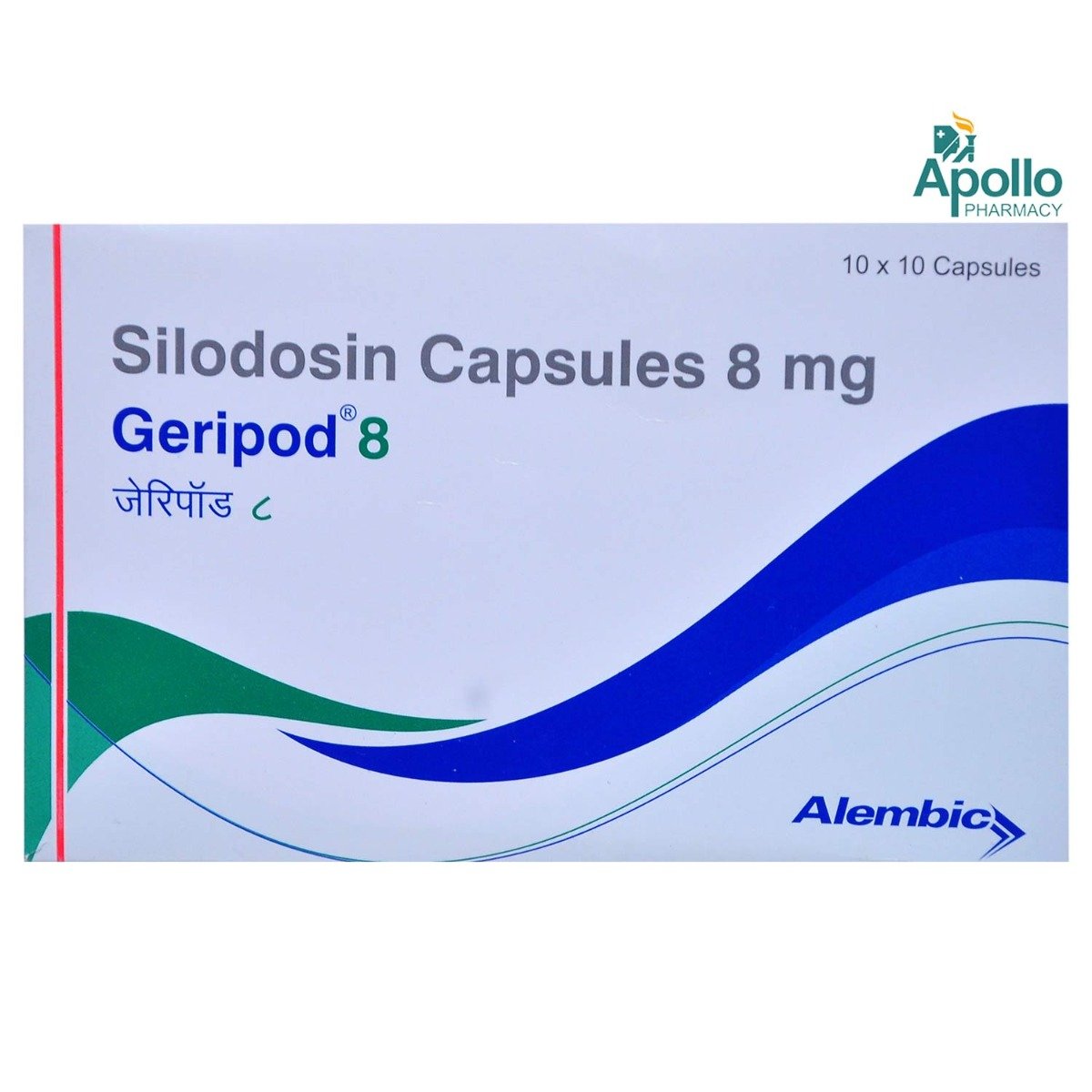
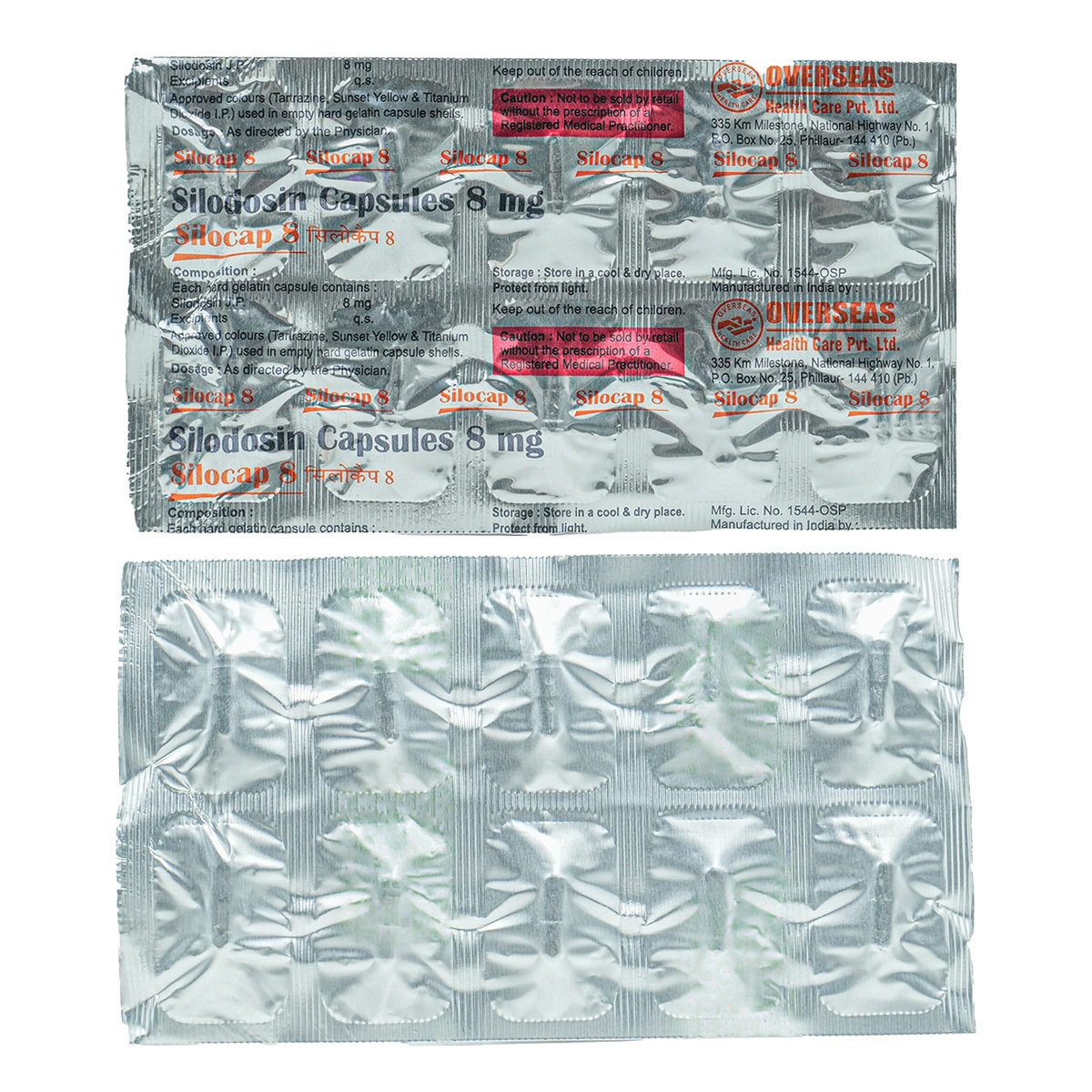
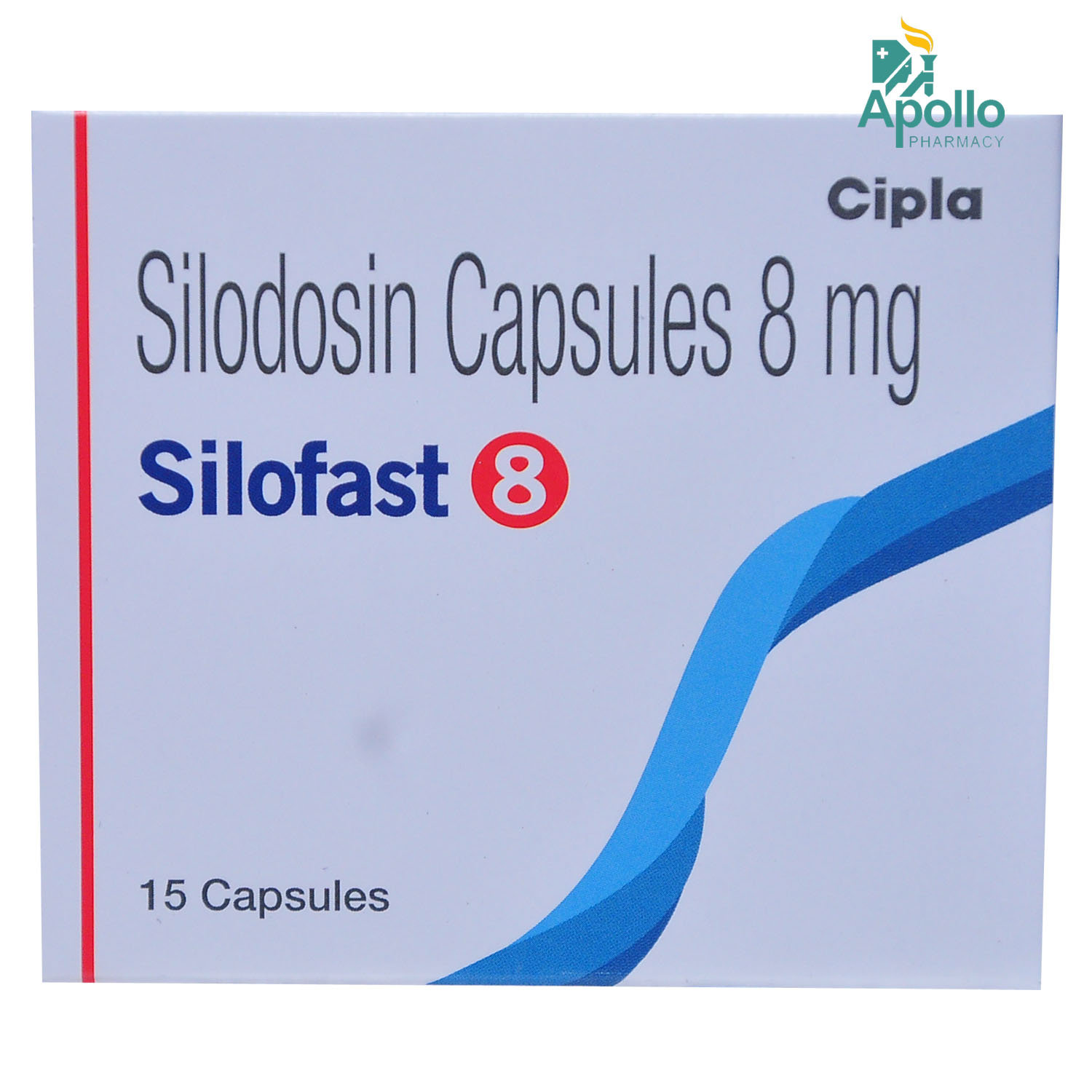
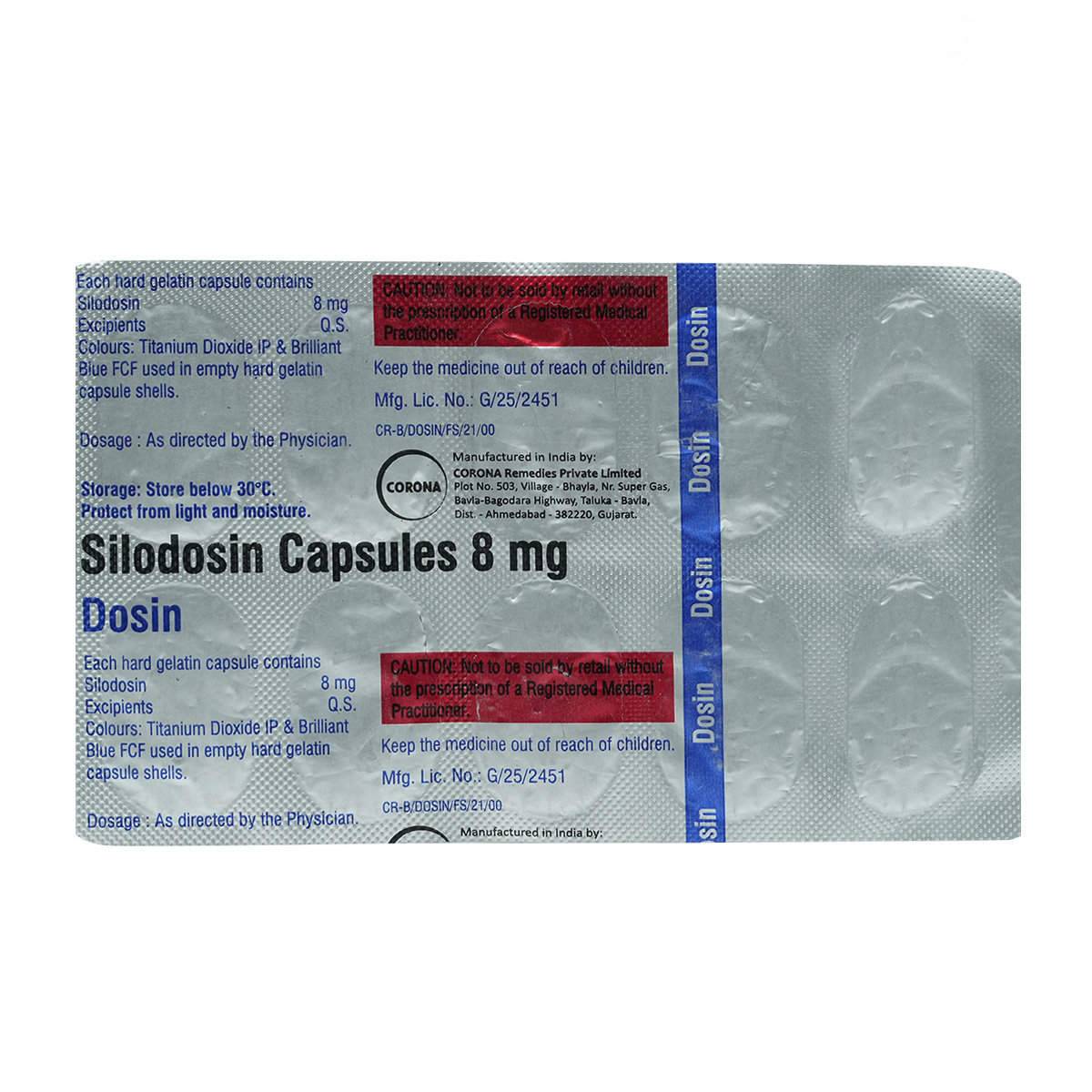
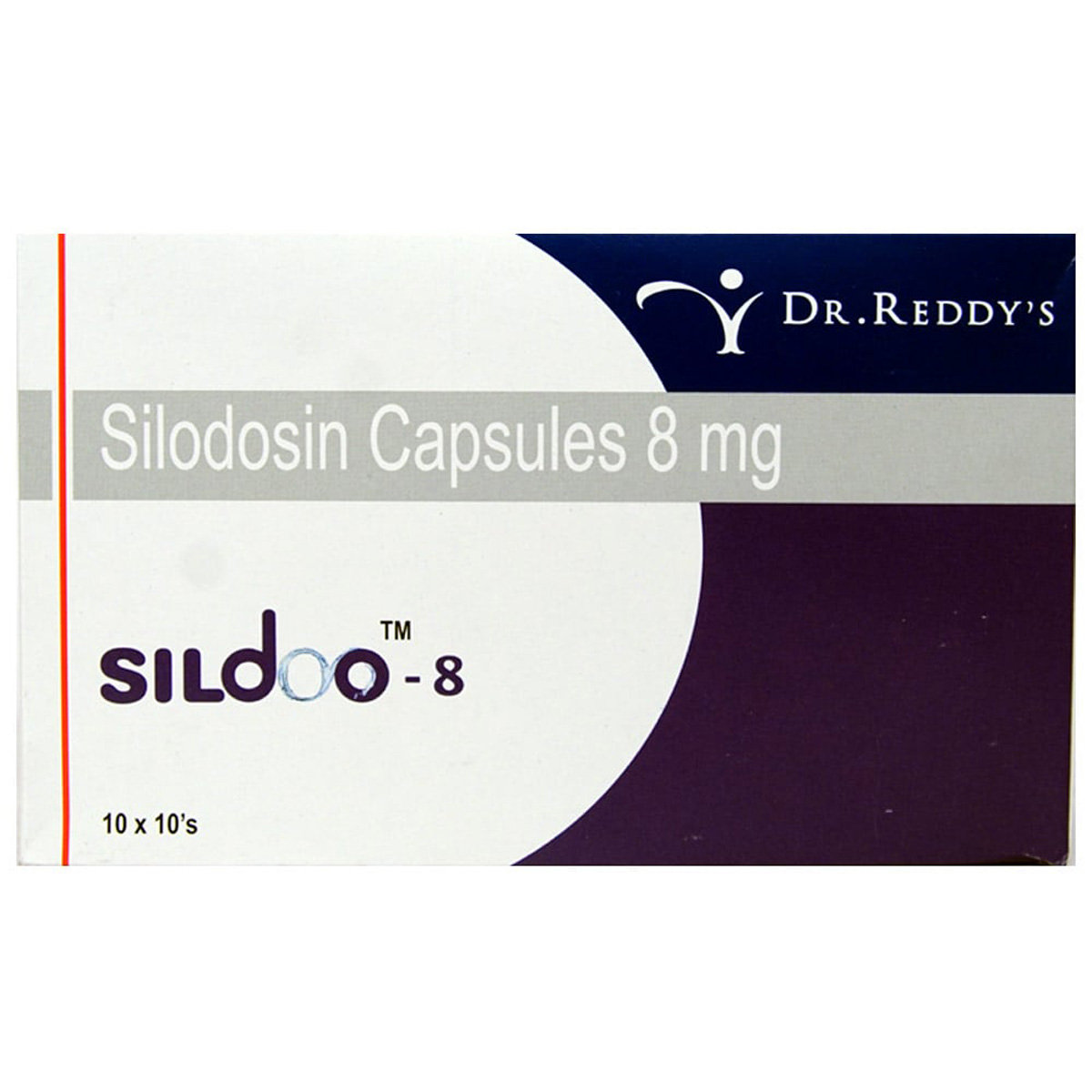
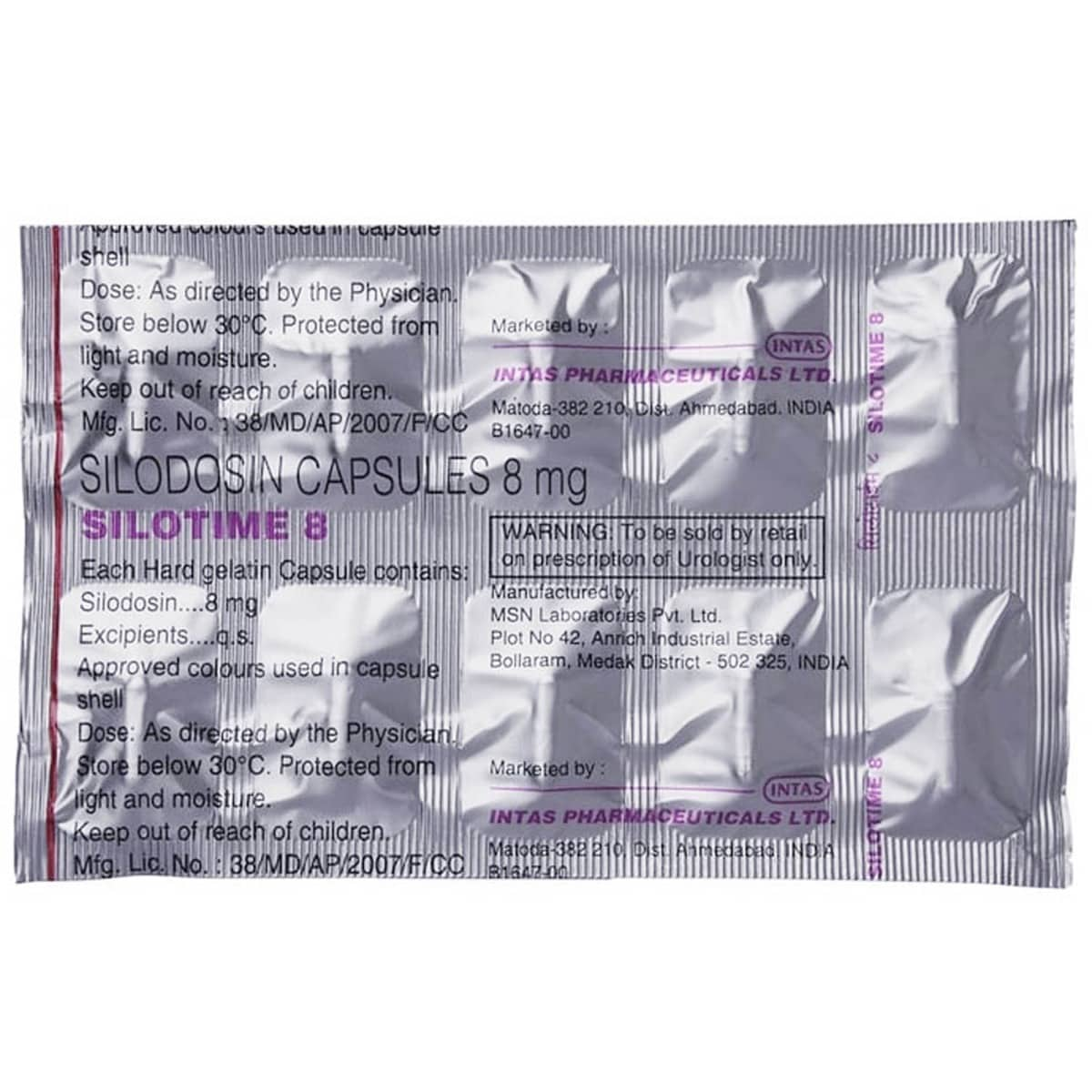

_0.jpg?tr=q-85)

